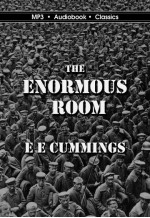E. E. Cummings
Edward Estlin “E. E.” Cummings was an American writer and painter regarded as one of the most important 20th century American poets. He also wrote essays, two novels, and four plays. He is well known for his idiosyncratic syntax and use of the lower case in his poetry, which became quite popular; he was considered the second most read poet after Robert Frost. He was born in Cambridge, Massachusetts to Edward Cummings, a Harvard professor and Unitarian minister, and the former Rebecca Haswell Clarke, and raised in the company of family friends such as philosophers William James and Josiah Royce. His ambition to be a poet took root at a young age and he wrote poems every day from the ages of 8 to 22. After earning undergraduate and graduate degrees from Harvard he worked for a book dealer and worked at modern poetry before enlisting in Ambulance Corps in 1917, which led to the experiences that he described in The Enormous Room. His collections Tulips and Chimneys (1923) and XLI Poems (1925) established his reputation as an avante garde poet. In 1926 his parents were in a car crash that killed his father and severely injured his mother, an event that had a profound effect and intensified his work. He was awarded a Guggenheim Fellowship in 1934, The Charles Eliot Norton lectures he gave at Harvard in 1952 and 1955 are collected in I: six nonlectures. |
The Enormous Room
The Enormous Room, the title of poet E. E. Cummings’ 1922 autobiographical novel of World War I, is ..
$11.99

